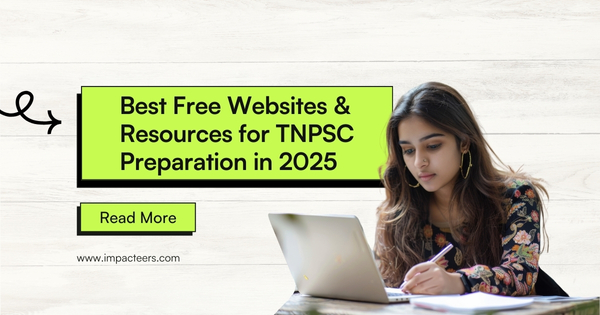Learn how to select the best optional subject for UPSC mains using smart strategies, syllabus analysis, past results, and expert guidance. Discover how Impacteers mentorship helps you avoid costly mistakes.

The optional subject—a deceptively small part of the UPSC Civil Services Mains exam—carries a weight of 500 marks (two full papers of 250 marks each). That’s almost one-fourth of your total written marks. In many cases, it becomes the deciding factor between success and heartbreak when final UPSC results come out.
Choosing the right optional subject is not about guessing trends or copying toppers. It’s a deliberate process that blends syllabus familiarity, genuine interest, exam-smart approach, and long-term planning. If you get this wrong, no amount of GS marks can compensate.
This blog breaks down the real process of choosing your optional subject—step by step—with practical examples, insights from past UPSC papers, and guidance on how Impacteers Mentorship can help you make this life-altering decision smartly.
1. What is the Role of Optional Subject in UPSC Mains?
Though UPSC has tried to reduce the influence of optional subjects, they still hold the power to dramatically impact your final result.
- Total Marks: 500 out of 1750 in Mains.
- Subjective Nature: You have the power to frame your own narrative.
- Edge over GS: Optional subjects can push your score above 300+ if chosen and handled wisely.
In short, your optional can be a secret weapon—or a burden that sinks your chances.
2. List of Optional Subjects Offered by UPSC
UPSC provides a wide range of optional subjects divided into two broad categories:
A. Literature Subjects
- Hindi, English, Sanskrit, Tamil, Urdu, etc.
B. Non-Literature Subjects
- Anthropology
- Public Administration
- Sociology
- History
- Geography
- Political Science
- Psychology
- Philosophy
- Law
- Agriculture
- Medical Science
- Mathematics
- Physics
- Economics
- Management
- Civil/Mechanical/Electrical Engineering
- Commerce and Accountancy
(Full list available in official UPSC form and syllabus notification.)
3. Key Factors to Consider While Choosing Your Optional
A. Interest and Background
- Do you genuinely enjoy the subject? Could you read it without losing focus?
- Do you have a degree or previous experience in this field?
Example: A student with a BA in History may find the subject easier and faster to revise than someone picking it blindly.
B. Syllabus Overlap with GS
- Some optionals significantly overlap with General Studies papers.
- Political Science, Geography, Sociology, Anthropology are common choices for this reason.
C. Availability of Resources
- Are standard books, test series, and answer keys easily available?
- Are toppers’ copies and solved papers accessible for the subject?
D. Scoring Pattern
- No subject is “high-scoring” by default. But some subjects have consistently high performance trends.
- Use previous year trends and answer scripts to gauge score consistency.
E. Answer Writing Feasibility
- Can you write structured answers with proper introduction, body, and conclusion?
- Is it easy to include diagrams, case studies, flowcharts?
4. Popular Optionals (And Why They’re Picked)
| Subject | Why It’s Chosen |
| Anthropology | Small syllabus, scoring, overlaps with GS-I, fast to complete |
| Sociology | Easy concepts, useful in Essay and GS-I/II |
| Geography | Visual diagrams, GS overlap, needs map-based practice |
| PSIR (Pol. Sci) | Significant GS-II overlap, useful in interview & essay |
| History | Familiar to many humanities grads, good conceptual flow |
| Public Admin | Governance topics align with GS-II; slightly technical |
| Philosophy | Short syllabus, but abstract concepts require clarity |
Each has pros and cons—your success depends on mastery, not just popularity.
5. Don’t Choose Optional Based On These Myths
- “Everyone takes this subject” → What works for someone else may not fit your strengths.
- “It’s trending this year” → UPSC doesn’t reward trend followers. Be unique in your prep.
- “The syllabus looks short” → Short doesn’t mean simple. Philosophy is short but abstract.
- “Science subjects are always better” → Not if you can’t write fluid, theory-based answers.
6. How to Analyze the Optional Syllabus & PYQs
Before finalizing, download the official UPSC syllabus of your shortlisted subjects. Then:
- Cross-check the topics with your academic background.
- Read 2–3 years’ worth of UPSC mains question papers for each.
- Try writing 2–3 sample answers from each subject.
This exercise will reveal:
- Which subjects you can explain in your own words.
- Which ones feel “foreign” or dry.
- Where you naturally flow in writing.
7. Optional Selection Timeline (Aligned to UPSC Dates)
| Month | Milestone |
| Jan–Feb | Start optional exploration |
| March | Decide final subject |
| April–July | Foundation reading + answer writing |
| Aug–Sept | Prelims-focused study |
| Oct–Nov | Post-prelims crash course revision |
Delaying this decision till post-prelims result is a common mistake.
8. Why Optional Success = Strategic Practice + Mentorship
Even after choosing a subject, the real challenge lies in:
- Learning answer writing structure specific to that subject.
- Tackling abstract essay questions.
- Using diagrams, maps, and case studies.
- Prioritizing important chapters within the syllabus.
This is where Impacteers Mentorship shines. Their one-on-one optional mentorship is designed to:
- Help you analyze past paper trends.
- Break down syllabus into doable chunks.
- Provide personalized feedback on full-length answer submissions.
- Strategize revision calendar based on the exam date.
It’s not about being told what to read—it’s about learning how to score. That clarity comes only with expert guidance.
9. Optional Subject vs GS: Where to Invest More Time
| Aspect | Optional Subject | GS Papers |
| Weightage | 500 marks | 1000 marks (4 papers) |
| Competition | Less (only students with your subject) | Everyone |
| Differentiation | High – top rankers score big here | Moderate – differences are tighter |
If you can push your optional score beyond 300, you can cover up for average GS scores.
10. How to Switch Optional Mid-Prep (Only If Absolutely Needed)
If after 2-3 months, your optional subject:
- Drains your energy,
- Feels impossible to structure answers,
- Lacks reliable resources or mentorship,
It’s okay to switch. But do it before June, not after the prelims form is filled.
Use Impacteers’ guidance sessions to analyze cost-benefit and build a Plan B.
Conclusion
The optional subject is not just another paper in the UPSC mains exam—it’s a massive scoring opportunity and a critical turning point in your UPSC journey. Choosing it blindly or based on hearsay can drag you down, while picking the right one with the right approach can skyrocket your final result.
Use logic, sample writing, past papers, and mentorship. Analyze the syllabus, test your interest, and align it with your strengths. And if you’re stuck or unsure, let Impacteers Mentorship be your compass. Their structured optional subject evaluation framework can save you from a year of regret and steer you toward success.
Frequently Asked Questions (FAQs)
1. What is the safest optional subject for UPSC?
There’s no “safe” optional. However, subjects like Anthropology, Sociology, and PSIR offer syllabus overlap, ease of study, and good scoring trends. Choose based on strength, not safety.
2. Can engineers choose non-technical optionals like Sociology?
Absolutely. Many successful candidates from tech backgrounds switch to humanities optionals and excel with structured study and mentorship.
3. When should I finalize my optional subject?
Ideally by March–April. Delaying beyond the prelims exam date compresses your revision window and affects performance in Mains.
4. Is it okay to choose an optional just for scoring trends?
No. Scoring potential matters, but if you can’t enjoy or express the subject clearly, you’ll underperform despite trends.
5. How can Impacteers mentorship help in optional selection?
Impacteers offers a skill-mapping framework that evaluates your strengths, answer quality, and background. Their mentors give personalized advice, weekly targets, and real-time feedback to maximize your optional score.

Post Comment